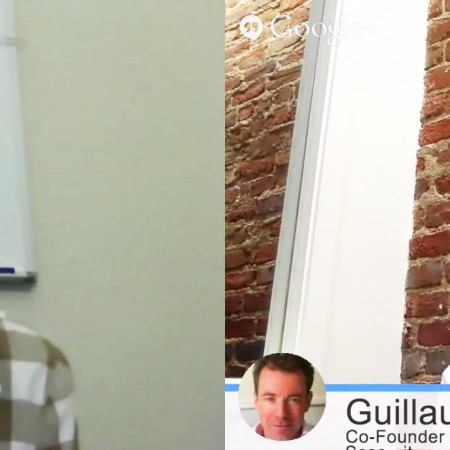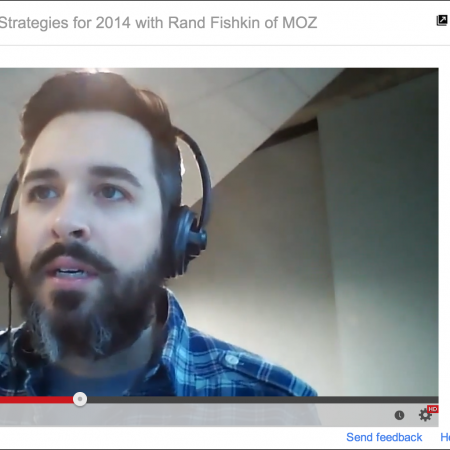Google Hangout: Content Curation Interview with Guillaume Decugis, CEO of ScoopIt & Julia McCoy
On January 13, I held a Google Hangout on Air with the CEO of Scoop.it, where I interviewed him about Scoop.it and the value of content curation this year. Below is the video and full transcript. It was a very insightful chat. Enjoy! View the Google HOA here. Content Curation Interview with Guillaume Decugis Transcript Julia: Hello everyone, I’m Julia McCoy, the CEO of Express Writers, a copywriting agency. I have with me today the CEO of Scoop.it. Can I ask you to pronounce your name, if you don’t mind? Guillaume: Sure, so hi everyone, I’m Guillaume Decugis. Julia: Guillaume. Did I say that right? Guillaume: Yes! Julia: Great! Awesome. So, to start this off, I just wanted to talk to you about your tool. I think it’s an excellent tool for content curation that is a huge need coming up this year. We’re just seeing so much content happen, and we need tools for content curation, to be able to sort this content, and to be able to share it. So, tell me a little about Scoop.it, how you built it, and how it helps businesses today. Guillaume: Well, thanks for the praise. So Scoop.it was something we started and launched three years ago. We launched it because we realized that Web 2.0 was creating an opportunity and a pressure. The opportunity and the pressure is actually the same. The opportunity is we can become a media publisher, we can publish a lot of content. That’s what all those tools around Web 2.0 helped us do. It’s not just an opportunity, it became a pressure. Now that everybody can publish content, if you do not, then you simply don’t exist. Or if you publish bad content, you might hurt your brand. So we felt that pressure is going to be something that a lot of professionals, businesses, companies, big and small are going to have a tough time with. Because.. Not everybody is a content creator. It takes time, energy, talent, inspiration to create good content. And so we felt a lot of people will be struggling with that. And there’s an alternative to create content, or complement. We like to talk about complement, which is content curation. We felt not everybody can become an awesome blogger, an awesome video producer. But, we believe that fundamentally all businesses, all professionals have expertise. When you’re good at what you’re doing, you’ve done that for a few years, you have expertise and you can apply that expertise to curate content, which means selecting great content that you feel is relevant to your field, and adding your own value, your own context: telling your audience why this was an awesome piece of content. And we felt that was much more accessible to professionals in general, and it is a great way to build your content strategy for your business. So that’s the background behind it. Julia: That’s excellent! I agree with everything you said about getting content, and staying on the map with content. As you may or may not know, I developed some content strategizing products in our own company. We wanted to go beyond just creating content. So we looked into creating curation, and we were going to try to plan content, and show people how to find content. One of the tools I found was Scoop.it. I was so happy it was so simple to use, and I was researching maybe 20 different tools. Scoop.it was a key of how we find content. How do you see it as answering a big need for curation coming up this year? Guillaume: So, first of all, I love the fact you found Scoop.it simple, because that’s really I think the key to what we’ve been trying to do. We wanted to make it super simple. Let’s clarify something: curation in itself is not simple. If you don’t have tools, it’s actually very complicated, and you can waste a lot of time trying to find great content. You’ll have this experience of, like, I’ve been browsing the web for FOUR hours and I felt I achieved nothing. And so we felt we needed to combine a couple of things. First, a piece of technology that could automate your content monitoring. And let’s be clear: automation, we automate the discovery of content, we never automate publishing. So we empower our users to publish in their own name what they’ve selected, and we make it easy for them to find content instead of searching for it hours every day. In just a few minutes, you can have the most relevant content in your field, directly on your Scoop.it engine. So simplicity is at the core of what we’re trying to achieve. I was asked by the Content Marketing Institute, what’s my prediction for 2015, and I think, you know, content marketing has been around for a few years. It’s maturing and it’s something that large companies have embraced. They’ve moved from traditional advertising, which is kind of old fashioned, to creating excellent content. The company which I admire which is probably the pioneer of content marketing is Redbull. If you look at what Redbull has become, they’re not a soft drink company anymore. They’re a media company. They have this content pool with 50,000 pieces of content, they launched a man to space and broke the record of parachuting down to earth. They’ve done amazing stuff, they’ve done amazing content. But the thing is they’re a large company, and they’re making a bold bet of transforming their company into a media company. A lot of the small midsize companies have not been able to do this, because it takes resources, it takes a long term horizon that large companies have and small companies don’t have. So my prediction for 2015 was that content marketing is now going to become mainstream. It’s going to become something that millions of SMBs in the US or in the world are going to be able to … Read more

